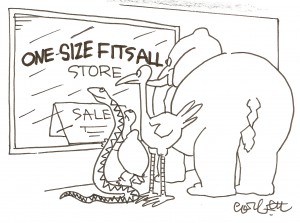 In honor of Mother’s Day this is a reposting of the bio I wrote on my mom, Jane Roberts, who died in 2006 at the age of 83. She had a long life with successes and failures, and became a great mentor and at times even comrade to me. During my teenage years in the early 1970s her struggle to recover from her divorce from my dad led me to finally start seeing her as a person like me, and not some iconic parental figure. That realization transformed my life…
In honor of Mother’s Day this is a reposting of the bio I wrote on my mom, Jane Roberts, who died in 2006 at the age of 83. She had a long life with successes and failures, and became a great mentor and at times even comrade to me. During my teenage years in the early 1970s her struggle to recover from her divorce from my dad led me to finally start seeing her as a person like me, and not some iconic parental figure. That realization transformed my life…
Abandoning Mars for Venus and Beyond
 I was born into a world in the 1950s where gender was a key component of who you were, and was to a large degree your destiny, even growing up in a perhaps more egalitarian and humanistic progressive university town community. Two clear discoveries in this area came out of my youth and young adult life, that have had a profound impact on the person I am evolving into.
I was born into a world in the 1950s where gender was a key component of who you were, and was to a large degree your destiny, even growing up in a perhaps more egalitarian and humanistic progressive university town community. Two clear discoveries in this area came out of my youth and young adult life, that have had a profound impact on the person I am evolving into.
The first was that gender was not a significant part of the nature of the individual human soul, just the “sexual plumbing” of the mammalian body our soul inhabits, despite our culture being built in every way around the supposed profound difference between men and women. A culture that seems obsessed with and even fetishizes whether your physical body has a penis, or breasts, vagina and uterus instead; and what that means to who you are and how you should be in the world.
The second was given that profound cultural divide between the genders, I became uncomfortable with the “men are from Mars” cultural expectations of my gender, and as a result increasingly uncomfortable in circles of men. Instead, I have gravitated to the world of women, and their insurgency to leverage the positive relational aspects of “women are from Venus”, while challenging its cultural limitations.
What follows is my best attempt at a narrative of my journey, from childhood to young adulthood, trying to navigate the minefield of gender expectations and find a safe and supportive place for myself in the world.
Our Daughter Emma’s Lung Collapse & Repair (Updated)
 Updated Monday April 15: A week ago Sunday at 11pm at night, Emma’s right lung collapsed for a second time, as it had done a couple months ago. Luckily this time, she knew enough from last time to know exactly what was happening to her, and since her boyfriend Luke was home he could take her to Kaiser hospital. What followed was a challenging week that looks to all end well tomorrow, with the problem repaired and future incidences or complications highly unlikely.
Updated Monday April 15: A week ago Sunday at 11pm at night, Emma’s right lung collapsed for a second time, as it had done a couple months ago. Luckily this time, she knew enough from last time to know exactly what was happening to her, and since her boyfriend Luke was home he could take her to Kaiser hospital. What followed was a challenging week that looks to all end well tomorrow, with the problem repaired and future incidences or complications highly unlikely.
It is a condition described clinically as a “spontaneous primary pneumothorax”. It is a rupture of the tissue of the lung that causes it to deflate and allows the chest cavity to fill with air outside the lung making it hard for the lung itself to reinflate. Such a rupture can be a secondary effect of an illness, or the result of some trauma like sudden or extreme air pressure change. But in this case there was no illness or trauma, thus the “spontaneous” label.
Governance in the School Trenches
 My friend, Peter DeWitt, is a public elementary school principal in upstate New York. He is a thoughtful and caring person, and I think probably represents the best of his public school principal profession, and I think any of my teacher friends would be happy to have such a leader for their school. He writes a daily blog for Education Week magazine online, and his pieces generally wrestle with trying to be a humanistic educational leader within a bureaucratic system of standardization, high-stakes testing, and other mandates and strictures from above.
My friend, Peter DeWitt, is a public elementary school principal in upstate New York. He is a thoughtful and caring person, and I think probably represents the best of his public school principal profession, and I think any of my teacher friends would be happy to have such a leader for their school. He writes a daily blog for Education Week magazine online, and his pieces generally wrestle with trying to be a humanistic educational leader within a bureaucratic system of standardization, high-stakes testing, and other mandates and strictures from above.
In his recent blog piece, “Why Would Anyone Want to Be a School Leader?”, Peter writes…
School leadership is hard…especially now. There are point scales to contend with, evaluations based on test scores, and budget cuts that result in the lay-offs of teachers and administrative colleagues. Some leaders who have been in the position for a few years have seen cuts to programs, and have a constant need to find creativity in a very uncreative time… On top of that leaders have students living in extreme poverty, an increase in the students with social-emotional issues, and in some cases are expected to take on the role of parents to students…and their parents…
Facilitating Many Political Paths
 It seems we Americans are caught up in and even obsessed with dualities. Good and evil, god or no god, democracy or tyranny, Democrat or Republican, liberal or conservative, men are from Mars and women from Venus. It all makes for a compelling competitive narrative and a great show when our team, however that’s defined by a group of us, goes up against the opposition, particularly when our team wins. I even tend to think in the duality of patriarchy versus partnership, and frame my own narrative of the latter (the circle of equals) triumphing over the former (hierarchies of domination and control).
It seems we Americans are caught up in and even obsessed with dualities. Good and evil, god or no god, democracy or tyranny, Democrat or Republican, liberal or conservative, men are from Mars and women from Venus. It all makes for a compelling competitive narrative and a great show when our team, however that’s defined by a group of us, goes up against the opposition, particularly when our team wins. I even tend to think in the duality of patriarchy versus partnership, and frame my own narrative of the latter (the circle of equals) triumphing over the former (hierarchies of domination and control).
But more and more these days I’m thinking this is an overly simplistic and unsophisticated approach to the world, that maybe sells tickets to some sort of framed contest between two opposing sides, but does not serve the cause of coming to some sort of compromise consensus on a pragmatic path forward for our society. What is needed I think is a different metaphor for constructive conflict that allows for an array of constituencies to form ever-changing relationships with each other.
Is the World Ready for a God-Embracing Atheist?
 They teach you that when in a job interview if asked whether you have a particular skill or experience and you must honestly say no, it is best to say “no but…” followed by sharing some other skill or experience you do or have had that is arguably comparable or at least applicable. For example, “No, I don’t have experience as a manager, but I do have a great deal of experience chairing committees in my congregation and leading volunteers.”
They teach you that when in a job interview if asked whether you have a particular skill or experience and you must honestly say no, it is best to say “no but…” followed by sharing some other skill or experience you do or have had that is arguably comparable or at least applicable. For example, “No, I don’t have experience as a manager, but I do have a great deal of experience chairing committees in my congregation and leading volunteers.”
I think that rule of thumb is applicable for any advocacy, even beyond advocating for one’s own employment. So when asked, “Do you believe in God?”, nowadays I am inclined to say “No, but…I appreciate the idea that there is a deeper level of connection between all of us and have my own metaphor for that connection.”
If the person asking believed in God they might not buy my answer. There take may be that either you believe there is a deity or you don’t (or maybe you’re not sure). Isn’t this an unbridgeable chasm between the worldviews of the atheist and the “believer” (theist)? How can there be any common ground here?
Please Support North Valley Caring Services!
Los Angeles is an amazingly diverse megalopolis including so many immigrant communities struggling to build roots in our city and our country. I have gotten involved with one such community…
Spring each year is my one big yearly effort to raise money for a critical community organization here in Los Angeles, North Valley Caring Services. They are and organization that provides free services to youth and their parents in a very poor, at-risk, mostly Hispanic neighborhood in the Panorama City area of Los Angeles, just three miles east of where my partner Sally and I live. For those of you who know the San Fernando Valley in Los Angeles, the neighborhood is located between the 405 freeway to the west and Sepulveda Blvd to the east and between Roscoe Blvd to the south and Nordhoff to the north. One of the most densely populated neighborhoods in the whole city!
North Valley Caring Services program for their neighborhood includes…
1. Family Literacy Program – Giving both young people and their parents the opportunity to improve the literacy skills they will need for family life, work and schools
2. Youth Program – Includes organized sports, schoolwork assistance, a library, and a place for neighborhood kids to hang out after school before parents come home from work
3. Childcare Training & Certification – Training adults in the neighborhood to be certified child care providers and provide care for the small children of other neighborhood family members so they can work outside the home.
4. Breakfast Program & Food Pantry – Providing free hot breakfasts for neighborhood residents and free donated groceries.
Please consider making a donation in honor of my upcoming 58th birthday. I have set up a PayPal site to collect donations from my friends and family. Click this link to access my PayPal account and make a donation, or if you are more “old school”, email me at cooperzale@gmail.com for information about sending a check. You can also find out more about the organization at their website.
I have been volunteering with the organization for the past seven or so years, focusing mainly on collecting food for their food pantry and assisting with their fundraisiing events. It has been a great and humbling experience for me to fully understand the extent of my own economic privilege and the narratives of some of the most recent immigrants to our country whose history has been built around other immigrants’ stories, including different components of my own families of origin who came to the states at various times from various places in Europe.
Moving Beyond Civilization’s Tools of Control
 This is a follow-up on my previous piece, “From Civilization to a Circle of Equals”, where I put forward a view that human civilization, since its flowering 5000 years ago with the invention of literacy, appears to have been built around the control of the majority of people within its purview by a minority elite. This piece focuses on some of the specific mechanisms of control, some developed in ancient times but continuing today, and others that are more recent “innovations”.
This is a follow-up on my previous piece, “From Civilization to a Circle of Equals”, where I put forward a view that human civilization, since its flowering 5000 years ago with the invention of literacy, appears to have been built around the control of the majority of people within its purview by a minority elite. This piece focuses on some of the specific mechanisms of control, some developed in ancient times but continuing today, and others that are more recent “innovations”.
I think it is critical that progressive people understand this history and these continuing mechanisms of control, so we have more of a chance to rise above these manipulations by controlling elites. It is equally critical that we avoid advocating for these manipulations ourselves, in our efforts to create a more egalitarian narrative for human society going forward into the future. Control, even by the forces of egalitarian ends, is still control, and diminishes the natural human spirit to control ones own destiny.
So here’s my list of such mechanisms, certainly not a comprehensive one, but some of the obvious bigees and a few others you might not have thought of.
We Need to Move Away from One-Size-Fits-All Education
 On Thursday I read an Education Week blog piece, “Survey Finds Rising Job Frustration Among Principals”, highlighting the Metlife Survey of American Teachers documenting declining morale among both teachers, principals, and other school leaders. It rekindled my frustration with the mainstream approach to endless inside-the-box “reform” of our public education system rather than making some real substantive changes. I posted perhaps an overly provocative comment…
On Thursday I read an Education Week blog piece, “Survey Finds Rising Job Frustration Among Principals”, highlighting the Metlife Survey of American Teachers documenting declining morale among both teachers, principals, and other school leaders. It rekindled my frustration with the mainstream approach to endless inside-the-box “reform” of our public education system rather than making some real substantive changes. I posted perhaps an overly provocative comment…
Seems like all the participants in the conventional schooling process are hating it more and more! Will we have to let the whole thing go down in flames before we get out of our state of denial and really transform the system, rather than this endless reform?
From Civilization to a Circle of Equals
 What follows is an outline of a book I intend to write and get published (even if self-published) in the next few years, based on a lot of the reading, thinking and writing I have done to date. The bulk of the links you find in the overview are to pieces I have previously written that I will attempt to weave in.
What follows is an outline of a book I intend to write and get published (even if self-published) in the next few years, based on a lot of the reading, thinking and writing I have done to date. The bulk of the links you find in the overview are to pieces I have previously written that I will attempt to weave in.
My working title at this point is “From Civilization to a Circle of Equals”, because I have come to see civilization, as human beings have mostly developed it so far, as an exercise in domination and control of the bulk of human beings by a vested elite. As we truly embrace the “circle of equals” in our society, we will see such a transformation as to perhaps move beyond any current concept of “civilization” as we know it.
Given that disclaimer, if you are interested in my thoughts on the grand narrative of our species, please keep reading, and please (please, please) comment with your thoughts! (It will also be posted on my site as a “page” called out in the right column!
